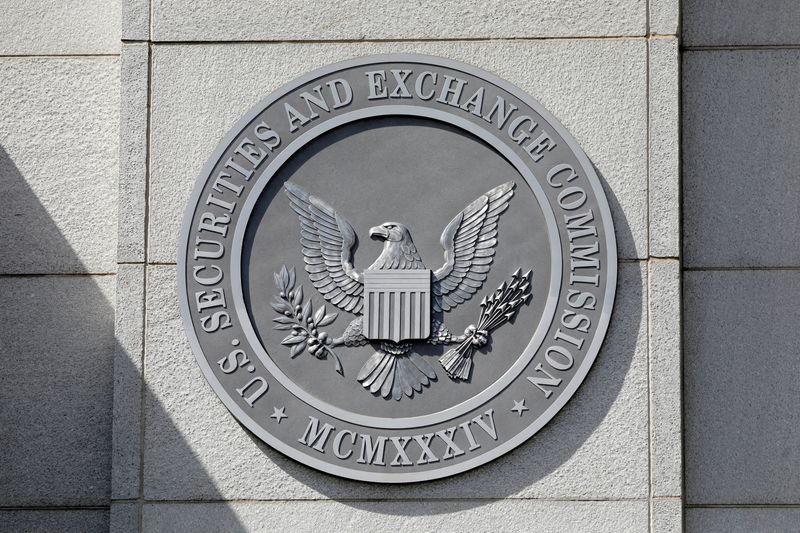By Jody Godoy
(Reuters) -The U.S. Securities and Exchange Commission is seeking fines and penalties totaling $2 billion in its case against Ripple Labs over sales of the cryptocurrency XRP, the company’s chief legal officer said in a social media post on Monday.
In posts on X, Ripple Chief Legal Officer Stuart Alderoty said the regulator has asked U.S. District Judge Analisa Torres in Manhattan for the penalties in court papers filed under seal. The SEC was scheduled to file the documents publicly with redactions on Tuesday.
“Rather than faithfully apply the law, the SEC remains bent on wanting to punish and intimidate Ripple – and the industry at large,” Alderoty said.
A spokesperson for the SEC declined to comment.
Torres ruled in July that the blockchain company’s sale of XRP worth $728.9 million to hedge funds and other sophisticated buyers amounted to unlawful sales of unregistered securities.
Ripple is scheduled to file a reply in April.
The SEC sued Ripple, its CEO Brad Garlinghouse and co-founder Chris Larsen in 2020, accusing them of illegally raising more than $1.3 billion in an unregistered securities offering by selling XRP.
The SEC dropped its remaining claims against Garlinghouse and Larsen in October.
The case has been highly watched, as it is among the biggest brought by the SEC in the cryptocurrency space.
While the SEC partly won the case, Torres dealt the regulator a high-profile setback when she ruled that XRP Ripple sold on public cryptocurrency exchanges did not meet the legal definition of a security.
Torres denied the SEC’s request to repeal that ruling while the case is in progress. But the regulator may appeal once the judge decides its request for penalties.
Other crypto companies facing SEC lawsuits, including major exchanges Coinbase and Binance, have pointed to Torres’ ruling in urging other judges to dismiss the regulator’s claims.
While the SEC has depicted most cryptocurrencies as the same kind of investment that has been classified as securities for decades, the industry has argued securities laws do not fit digital assets and called for new laws and regulations.
(Reporting by Jody Godoy; Editing by Paul Simao and Marguerita Choy)
This article was originally published by a finance.yahoo.com . Read the Original article here. .

